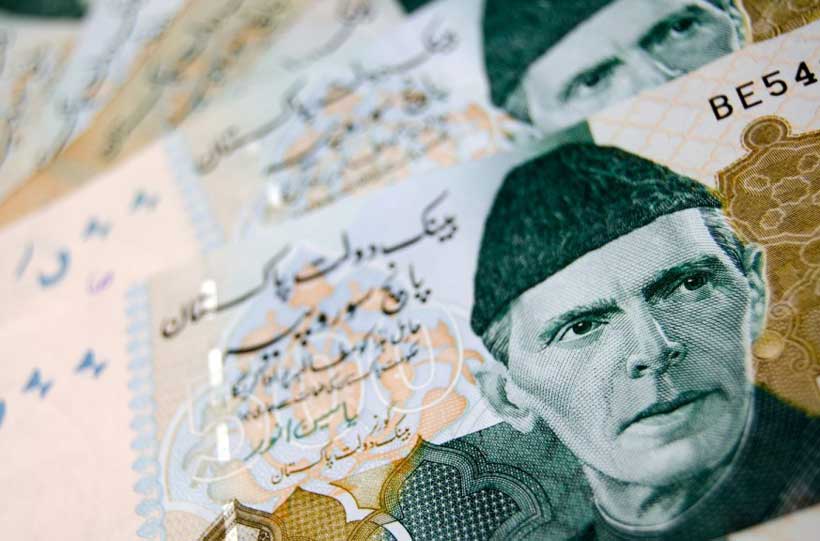The history of the Pakistani economy has always been linked to its struggle for stability, growth and adaptation to global trends. For decades, the rupee was the main anchor of financial identity, but it has also been a silent witness to persistent inflation, the depreciation of money and the widening of budgetary deficits. While the world is entering the digital age, Pakistan is now faced with a historic opportunity: the integration of blockchain technology and cryptocurrencies in its financial system. What once seemed to be a distant innovation is now to shape as a potential life buoy.
The launch of Pakistan Crypto Council (CPC) in 2025 is not only a bureaucratic development; It’s a turning point. Supported by the government, with the Minister of Finance Muhammad Aurangzeb at the helm and guided by the expertise of Bilal Bin Saqib and international personalities such as the co-founder of Binance Changpeng Zhao, Pakistan reported that he is no longer a passive observer of the digital revolution. Instead, it aims to position itself as a competitor in the world blockchain economy. The figures alone reflect the emergency – more than 40 million Pakistanis are estimated at cryptocurrency, while annual crypto trading volumes exceeded $ 300 billion. This silent revolution has already taken place among citizens; The task is now that the state exploits it.
In this sense, an important breakthrough occurred when Pakistan Virtual Assets Regulatory Authority (PVARA) held its first meeting and announced the official end of the banning of the State Bank in 2018 on cryptocurrencies. This decision has removed a major obstacle for industry, reporting to investors and innovators that Pakistan is finally ready to evolve towards a regulated digital asset ecosystem.
“If the 20th century belonged to petroleum, the 21st century belonged to the data and to the numerical value.” This idea echoes the global transformation that we see around us. For Pakistan, where funding of funds are the backbone of the economy, blockchain -based financial channels can reduce costs, increase transparency and ensure efficiency. Today, migrant workers are often losing 6 to 8% of their funds of hard funds won at transaction costs when sending money. The blockchain promises to reduce this to almost negligible amounts, potentially adding billions of dollars a year in the hands of Pakistani households.
The adoption of blockchain also means more than cheaper transactions. It offers Pakistan an escape from the recurring cycle of the FMI rens and dependence on foreign reserves. By legalizing and regulating digital assets, the country can open new foreign investment paths. Cryptographic startups, monitoring of the blockchain -based supply chain, decentralized finance (DEFI) and tokenized microlaves for small businesses can create jobs for the bulging of young people who are currently fighting with unemployment. As Bilal Bin Saqib noted, blockchain is not just an alternative currency; It is a “parallel economy that awaits to be unlocked”.
However, criticisms are not wrong to revive alarms. Cryptocurrencies, despite their promise, remain deeply volatile – the prices are wildly swinging, fortunes are made and lost overnight, and the absence of intrinsic value makes many digital tokens look like speculative assets than stable currencies. For a fragile economy like that of Pakistan, overtaking on such an unpredictable market could bring as many risks as opportunities. The recent collapses of world exchanges and scams in cryptographic space also serve as reminders that uncontrolled enthusiasm can easily turn into a disaster. Pakistan’s challenge is to embrace technology without being blinded by media threshing.
The skeptics argue that cryptocurrencies are too volatile to trust. Their concern is valid, but volatility can be managed by a digital currency supported by the State or a digital currency of the Central Bank (CBDC). Countries like China and Nigeria have already advanced in this regard. For Pakistan, the introduction of a digital roupire supported by blockchain can reduce transactions of the black market, widen the tax net and strengthen public confidence in formal institutions. It could also reduce corruption by creating immutable and transparent transactions.
Beyond the currency, blockchain can redefine governance. Imagine a land register system where property recordings cannot be handled, or a public procurement system where contracts are executed automatically through intelligent contracts, eliminating the intermediary. These are not abstract theories; These are practical solutions to the secular governance challenges of Pakistan.
Young people, who represent 64% of the Pakistani population, are already adapting. Thousands of freelancers and computer professionals win thanks to blockchain -related projects, while universities are starting to include blockchain lessons in their study program. If it is guided with good regulations, this demography can transform Pakistan into a regional center for blockchain innovation. “A nation that lacks the technological wave of its time may be left for generations.” Pakistan must take this warning into account.
Of course, challenges remain. The shadow of the Financial Action Task Force (FATF) occupies an important place and to ensure that blockchain does not become a tool for money laundering or the financing of terrorism is essential. But pure and simple prohibitions, like that attempted in the past, only push industry underground. Instead, an intelligent regulatory framework – aligned with international standards – can both protect Pakistan and allow innovation to flourish.
The way to follow is clear. Pakistan must invest in digital literacy, to associate with the world leaders in cryptography and encourage local entrepreneurs to develop solutions based on blockchain. Tax policies must be restructured to support rather than punish innovation. Above all, confidence between the State and society must be rebuilt by transparent practices that the blockchain itself allows.
“Roupie can define our past, but blockchain can define our future.” For a country often trapped between the crisis and survival, it is not only an option – it is a necessity. If Pakistan embraces this wave with foresight, discipline and innovation – while remaining cautious of its risks – Blockchain could indeed become the game changer which transforms the economy of the rupee into a digital power.










